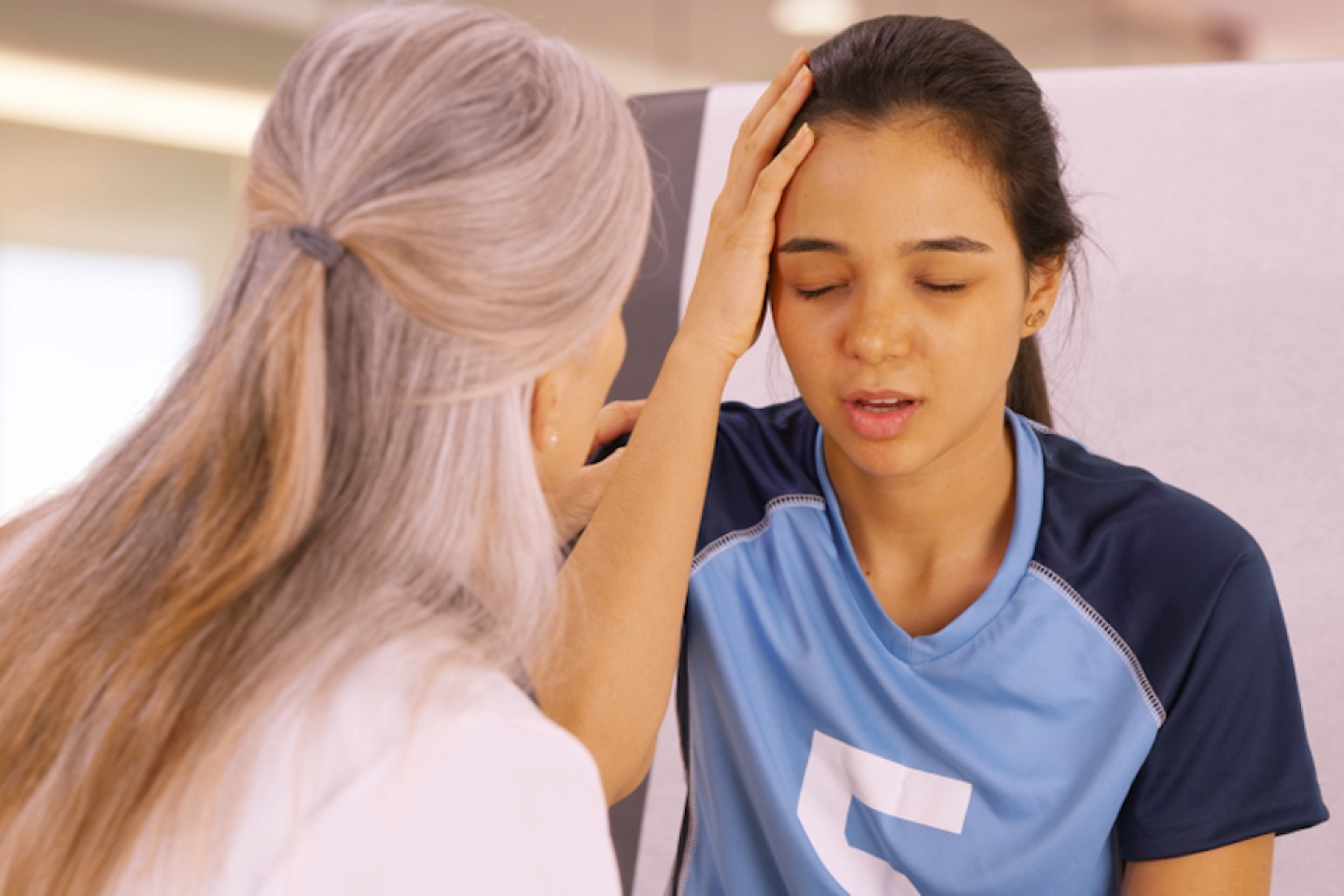
A mild traumatic brain injury (TBI)—a term often used interchangeably with “concussion”— is typically caused by a bump, blow or jolt to the head or a violent shaking of the head and body.
According to the Centers for Disease Control (CDC), falls are the leading cause of mild TBIs, accounting for close to half of the total. In order of frequency, the remainder are caused by being struck by or against an object (i.e., injuries incurred while playing sports, assaults or other injuries); and motor vehicle accidents.
Upwards of 90 percent of all TBIs are considered mild. That’s because they’re usually not life-threatening. However, the effects of a mild TBI or concussion can sometimes be serious.
In what follows, Dr. Joan Stilling, a specialist in general neurorehabilitation and Assistant Professor of Clinical Rehabilitation Medicine at Weill Cornell Medicine, explains the complexities of these injuries, along with how they’re diagnosed and treated.
After a mild TBI, there may be disruption in the chemical functioning of the brain, changes in how one part of the brain “talks” to another part (functional connectivity) or damage to brain tissue.
Shortly after sustaining a mild TBI, you may:
Note that it may be difficult to sort out your symptoms at first, as they are similar to other health problems. Some people may not recognize or admit that they’re having problems. And sometimes, these problems can be overlooked by friends and family members.
Both mild and more severe TBIs share many of the same symptoms. The difference lies in how long these symptoms last, and in how patients perform on a specialized test that evaluates their overall motor, visual and verbal ability.
A patient with a TBI may lose consciousness, but the injury is considered mild when that lasts less than 30 minutes.
Similarly, if that patient experiences any loss of memory, it’s classified as mild if the loss dissipates in fewer than 24 hours after the injury.
Danger signs in both children and adults include such neurological changes as:
We assess each person’s memory, mood, vision, cranial nerve function, strength, balance, sensation, reflexes, coordination and walking ability. We also note headaches, problems with attention and sleep changes. Depending on the problems a patient is experiencing, we treat each issue separately or use rehab therapies in combination.
For example, we may refer a patient to a physical therapist to work on strength, walking, balance and spatial orientation.
We prescribe occupational therapy for problems with vision, thinking and memory; for modifications that need to be made to a patient’s home environment; for sensitivity to light and noise; and for modifications to be made at work.
We can refer the patient to a psychologist to help with attention, memory, thinking and mood.
And if a patient has a headache or attention, memory or sleep problems, a rehabilitation specialist can recommend lifestyle changes, order special equipment or prescribe medication. We can order any further tests, such as blood work or imaging, to help diagnose specific problems that could be contributing to your symptoms. Your doctor can also provide advice on how to get back into the swing, including sports and work- or school-related activities.
Most patients recover from a mild TBI within 3 months. However, from 5 to 40 percent may continue to experience persistent post-concussion symptoms, including:
Dealing with any or all of these post-concussion symptoms requires a multi-disciplinary team composed of physicians, nurses, therapists, psychologists, social workers and case managers. At Weill Cornell Medicine, we assemble a team tailored to the needs of every patient we treat.
Continued follow-up and assessment by a doctor—particularly one who specializes in mild TBI—is highly recommended. Patients may also require imaging, bloodwork or other tests, depending on symptoms and recovery trajectory following the head injury.
The CDC suggests the following steps to speed your recovery:
Please visit here to consult with a rehabilitation medicine physician with expertise in mild TBI.